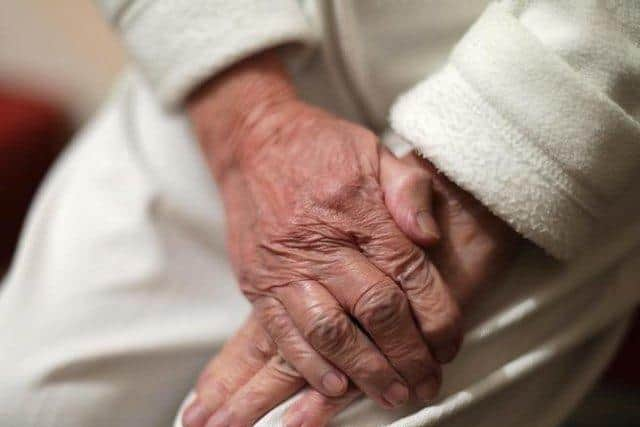Up to 223 people in Milton Keynes died over last 4 years while waiting for social care
and live on Freeview channel 276
More than 100,000 people in England have died while waiting for social care over the last four years, including between 215 and 223 in Milton Keynes.
Analysis of NHS Digital data by NationalWorld reveals 107,310 people who applied for adult social services from their local council between April 2016 and March 2020 died before they received any support.
Advertisement
Hide AdAdvertisement
Hide AdIn Milton Keynes the figures show the highest number of deaths as being in the over 65s with 65 people dying while waiting for social care in 2017-18, 70 in 2018-19, and 60 in 2019-20.


The figures are much lower in the 18-65 age range with 10 people dying in 2017-18, and five both in 2018-19 and 2019-20. Deaths were only recorded from 2016 so figures for 2016-17 are below five in all age groups, however these figures may be under estimated.
Social care support includes end of life care – which was provided to 7,310 applicants last year – meaning those recorded as deceased prior to care provision did not receive this, unless it was arranged privately with no involvement from the council.
The Institute for Public Policy Research said many people have been left to die “without dignity” because of a lack of funding for services to provide end of life support at home.
Advertisement
Hide AdAdvertisement
Hide AdIt follows a report by NationalWorld revealing fewer than half of those who apply will get genuine social care, with more than a quarter turned away with no support provided at all.
"It’s very concerning that 100,000 people have died in the period between applying for social care and receiving it,” said Chris Thomas, senior research fellow for IPPR.
“The evidence is clear that people overwhelmingly prefer to receive end of life care in their homes and communities, but that is only possible if funding is there for the right services.
“Sadly, this hasn’t been the case - meaning many people dying deaths without dignity.
Advertisement
Hide AdAdvertisement
Hide Ad"IPPR analysis shows the Covid-19 pandemic has made this worse, by increasing the number of people relying on overstretched home, community and social care services for their end of life care."
The council with the highest number of deaths last year was Gloucestershire, where 2,225 people died. That was 12% of the 18,555 new clients who asked for support during the year.
That was followed by Norfolk (1,680), Staffordshire (1,595), Derbyshire (1,445) and Essex (1,430).
The figures are also likely an underestimate.
In 2016-17, the first year the data was published, only 6,580 people were recorded as deceased after applying for care. That jumped to 32,115 the following year and has stayed above 30,000 each year since.
Advertisement
Hide AdAdvertisement
Hide AdReporting the deaths was only made mandatory in 2017-18, and could be recorded under an umbrella group of ‘no services provided’ in 2016-17, which may be behind the sudden increase.
NationalWorld asked the Department of Health and Social Care (DHSC) for a response. It did not address the figures, directing us instead to a press release on the Prime Minister’s new plan for social care announced on Tuesday (7 September).
Around 92 people died every day on average in 2019-20 while waiting for the social care they had requested - including end of life care
The vast majority who died last year were aged 65 or over. More than one in 50 applicants (2.2%) in this age group (30,415 out of 1.37 million) were deceased before they received care.
That compared to 3,340 out of 560,350 applicants aged 18 to 64 (0.6%).
On Tuesday the Government announced an increase to National Insurance contributions of 1.25 percentage points.